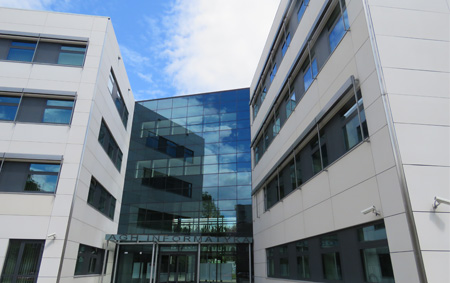
Zapraszamy na Krakow Quantum Informatics Seminar organizowane wspólnie przez Instytut Informatyki AGH i IBM Software Lab Kraków.
Spotkanie odbędzie się we wtorek 7.06.2022 w godzinach 9:35-11:00 via Internet, Webex https://ibm.webex.com/meet/tomasz.stop
W programie: Tobias Guggemos, German Aerospace Center (DLR) Remote Sensing Technology Institute EO Data Science, Oberpfaffenhofen, 82234 Weßling, Germany
Temat: Quantum Input State Encoding - Pet Peeve or Showstopper?
Abstract Quantum algorithms promise exponential speed-up to some challenges in maths and computer science. Prominent examples are prime factorization, computing discrete logarithms or solving linear equation systems. Consequently, the field of quantum computing is very interesting for research disciplines where the development of classical computing hardware is foreseen to become the limiting factor to solve real-world problems. Among them are the simulation of chemical or physical systems, solving combinatorial- and optimization problems, and application of machine learning. However, in contrast to algebraic or number theoretical problems, these use cases typically deal with complex data or high-dimensional parameter spaces. Although quantum approaches for speeding up the underlying algorithms exist, the complexity of the input data results in challenges for quantum computing that do not exist in the classical world: efficient translation of classical data to quantum states that can then be used for computation.
This problem is often ignored when quantum algorithms are applied or prospectively solved with quantum memory. Even though encoding strategies of images, for example, can be efficient in terms of (error corrected) qubits, the number of required quantum gates to prepare the desired input state can grow exponentially in the dimensions of the input data. This can thwart any potential speed-up gained by data procession on the quantum device. In this talk, we will show some strategies for using data intrinsic features that allow natural (and therefore efficient) encoding, as well as classical optimization strategies for reducing the complexity of input preparation.
The talk will outline some new ideas for data embeddings and how to enhance existing encoding techniques. Many of them are found in classical optimization strategies for compilers or use well-known techniques like graph optimizations.
